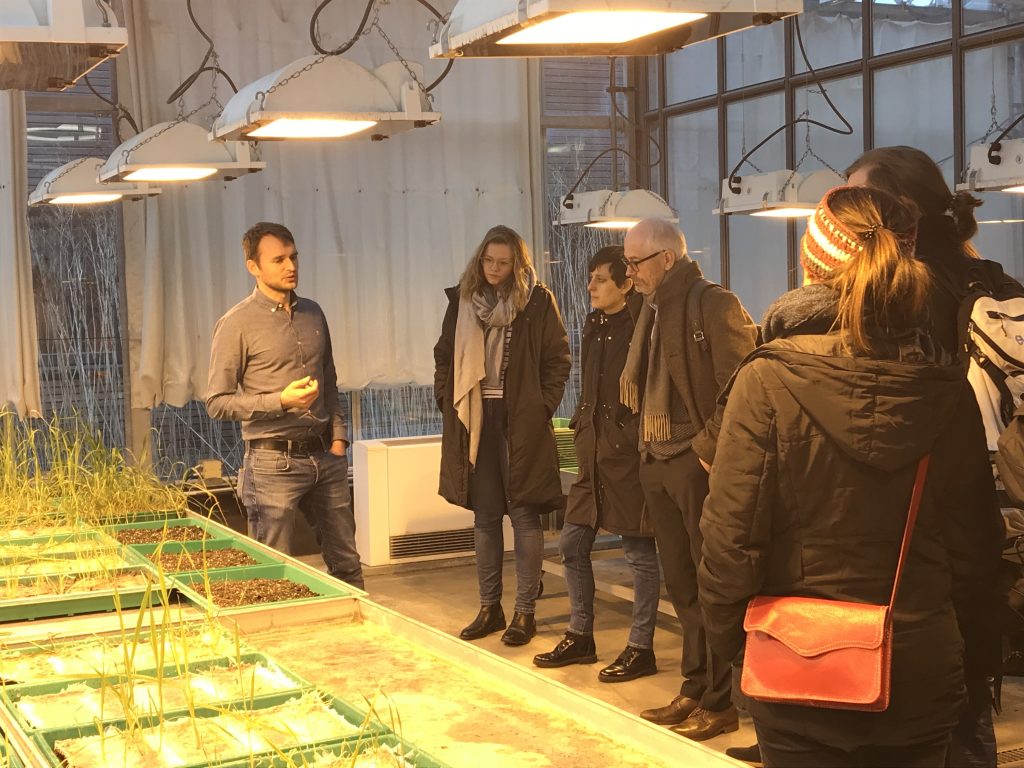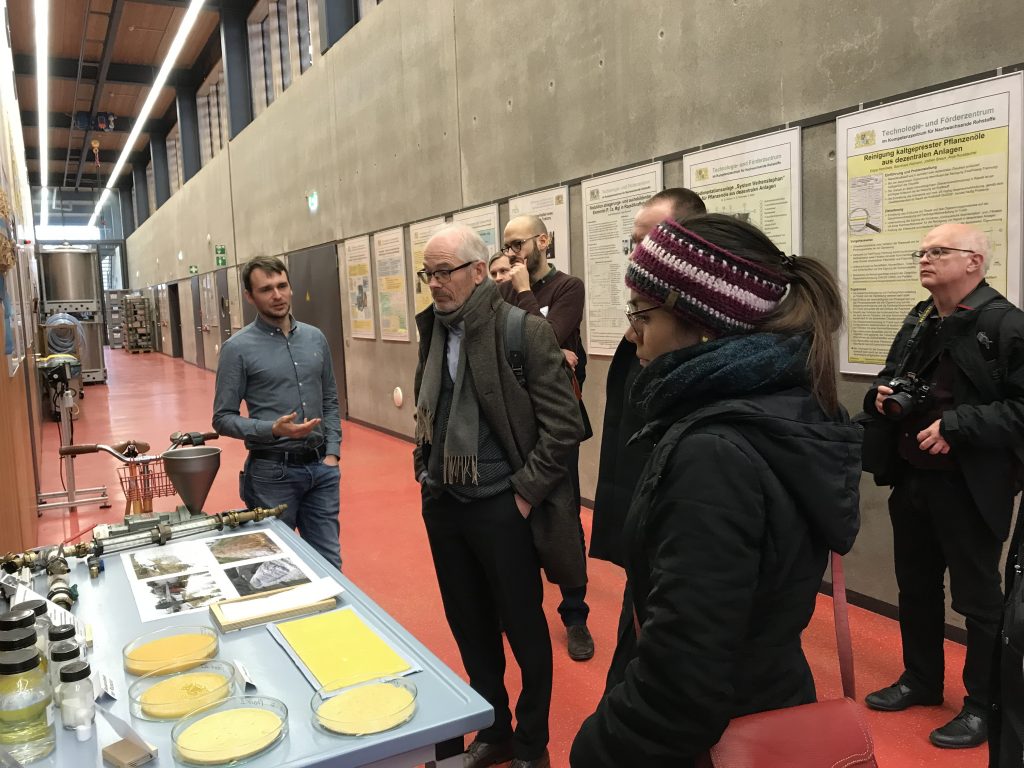
Munich and Straubing, 21st and 22nd of January 2020
The EU-funded project POWER4BIO supports regions in their transition to bioeconomy by, among other things, facilitating networking and learning from each other for regional stakeholders. Therefore, a regional visit to Bavaria took place from January 21st to 22nd – the third of a ten-part series, during which the partner regions get to know each other’s bioeconomy strategy. In addition to the POWER4BIO consortium and the POWER4BIO group of interest, representatives of the Bavarian ministries, the Bavarian Bioeconomy Advisory Council, industry, research institutions and companies also took part in the two-day event in Munich and Straubing.
The Cross-Visit started with a workshop on bioeconomy in Bavaria in the Bavarian Ministry of Economic Affairs, Regional Development and Energy in Munich. Dr. Ulrike Wolf and Dr. Tatjana Nabokin, spokeswomen of the ministry, gave insight into the subject of bioeconomy in Bavaria and the development process of a Bavarian bioeconomy strategy. The presentations were followed by an introduction to the POWER4BIO project by Laura Kühn from the Chemie-Cluster Bayern, regional representative of the POWER4BIO project and organizer of the Cross-Visit. Afterwards, Claudia Leifert from EPC gGmbH presented Enabling, another Horizon2020 project on bioeconomy.
In the afternoon, the participants had the chance to become active themselves by discussing in two working groups the questions of how to generate society’s interest in bioeconomy and what information consumers need in order to make the bioeconomy more transparent. Both teams developed practical suggestions on how the bioeconomy could be better integrated into society in the future. The first day ended with a guided tour through Munich’s Beer and Octoberfest Museum and a traditional Bavarian dinner.


The second day started with the thematic forum “Bioeconomy in Bavaria” at the Competence Center for Renewable Ressources (KoNaRo) in Straubing. Sabine Gmeinwieser presented the KoNaRo and Straubing as the reigon of renewable ressources. Andrea Hain introduced the Bavarian Bioeconomy Advisory Council and Ann-Kathrin Kaufmann from BioCampus Straubing discussed the infrastructure for biobased industry in the Straubing region.
The well-attended forum ended with presentations by two regionally located bio-based startups – LXP Group GmbH and Biofibre GmbH. Dr. Friedrich Streffer from LXP gave an insight into the company’s technology that breaks down biomass of the second generation into cellulose, hemicellulose and lignin. Jörg Dörrstein introduced Biofibre, the winner of the Biopolymer Innovations Award 2019. Biofibre produces bio-based and biodegradable plastic composite materials with different properties, depending on customer requirements.
The participants then visited the permanent exhibition “Renewable Raw Materials” of the KoNaRo which presents technologies and products made from renewable ressources in an appealing and vivid manner. The KoNaRo also encompasses a greenhouse in which bio-based material for weed control on vineyards is tested. During a visit to the center’s laboratory, the participants learnt about the research on microorganisms that produce biochemicals.
The last item on the agenda was the visit of the Clariant Sunliquid demonstration plant. In this plant, cellulosic ethanol is produced from agricultural residues with an annual capacity of up to 1000 tons. The participants gained insight into all stpes of the production process – from pretreatment, enzyme production, hydrolysis and fermentation to separation. The water and energy generated in the demonstration plant are completely recycled. Vinasse and press cake, by-products of ethanol production, are sold to farmers as natural fertilizers.

